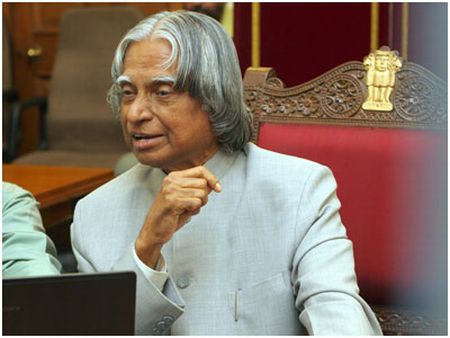
India received a great mind at work in Rashtrapati Bhawan for five years. In the tenure, President Dr. APJ Abdul Kalam became one of the dearest persons for common Indian for his great qualities, his contributions to the nation and for his great vision.
Now, he is preparing himself to receive farewell from the office staff this month. He has still lots of words to say on the problems India facing these days. He said on Tuesday:
India is facing a shortage of leadership with nobility. This is the biggest cause why people are now looking to the judiciary as their sole hope.
On the occasion to launch the e-court project in New Delhi, President Kalam told to the people present at the occasion that a country fails not because of lack of economic progress but it fails because of an increase in decision makers with small minds.
He said that at present Indian society is facing the unique dynamics because of the shortage of leadership with nobility and graciousness. This is the biggest cause the nation cherishes and looks to the judiciary with its excellence and impeccable integrity.
The entire judicial system is facing a heavy responsibility to live up to the expectations reposed in it. Qualities of honesty and integrity are synonymous with each member of the judicial system.
The other dignitaries present at the function were Chief Justice K G Balakrishnan, Law Minister H R Bhardwaj and Communications and Information Technology Minister A Raja.
Kalam later described India’s judicial system as dynamic and throbbing with life. He termed Indian Judiciary as the ultimate protector of human rights and the final resort for dispensation of justice.
Indian people look up to this pillar of Indian democracy with great hope. He even administered an oath to law students present at the function to do their work sincerely to decrease the vast number of pending cases.
Kalam also welcomed the idea of introducing e-courts project to boost the efficiency of the judiciary. By connecting the courts electronically and digitizing the judicial services, Kalam suggested the government to creating an e-judiciary system in India.
With the introduction of e-court project, at least 15,000 judicial officers would get laptops to ensure seamless flow of judgments to the public.
According to the report, the e-courts project would be implemented in three phases in the period of more than five years. It would need to create a digital inter-connectivity between all the courts from the taluka level to the Supreme Court. The facilities of video-conferencing will be there in the courts with the digital archiving of the cases.




